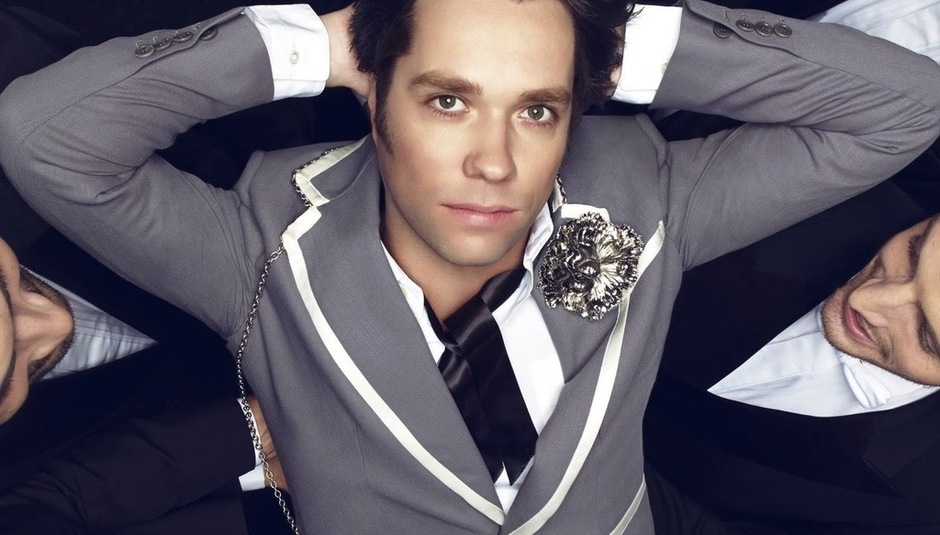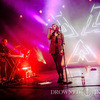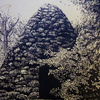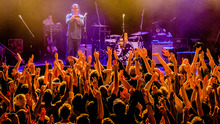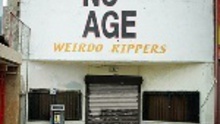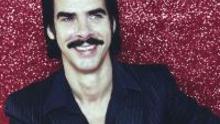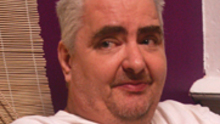Rufus Wainwright’s earliest memories of singing are basically a hip, 70s version of that bit in The Sound Of Music where the Von Trapp children entertain party guests before being sent to bed, except instead of Austrian aristocracy it was the hipster art and musician friends of his mother or father, and instead of sweetly saying goodnight, it was Rufus and his elder sister Martha nursing their mother's friends through their come-downs.
“It’s probably what the The Sound Of Music was really like, actually” he says when I point out the comparison, “‘The Sound of Hell!’” Such is life growing up amid folk royalty, “My mom would use my sister and I as a kind of wake up call to drunken friends, that it might be time to go home, or chill out or relax a little bit. So we used to get up there and sing and appease the drunken spirit.”
If you know anything about Rufus Wainwright, you know he’s the progeny of folk royalty. It’s Wainwright 101. His parents were folk singers Kate McGarrigle and Loudon Wainwright III, his aunts were folk singers Anna McGarrigle and Sloan Wainwright, his sister is singer Martha Wainwright… you get the picture. What’s unavoidable when you speak to either of the Wainwright siblings is how completely central their parents careers were to their own developing musical identities.
“My mother and my aunt really encouraged their kids to sing with them, ever since we were young children,” Martha said once, “I remember standing with them behind me, yanking on my hair if I got it really wrong.” Baby brother Rufus, now 40, married to long-term partner Jörn Weisbrodt, and with a daughter of his own (Viva Wainwright Cohen, whose mother is Lorca, daughter of Leonard, more of whom later...) has carved out a career making cinematic pop music, his beautiful melancholic tenor turning everything into a torch song. In a career edging two decades he’s written an opera (there’s a second on the way) covered Judy Garland’s 1961 Carnegie Hall show note for note, and released seven solo albums. With the release of his first proper Best Of (“not a Greatest Hits” he’s quick to point out), Vibrate- The Best of Rufus Wainwright this seems as good a time as any to trace that journey.
“My parents were musicians, and my aunts and uncles - it almost seemed odd not to do music.” begins Rufus, “What I will say, though is that I had a really early memory of being about six or seven, pretending to perform on stage. When I played piano I’d be alone in the living room and I’d pretend I was at Carnegie Hall or something. I’d bow to the audience and sit down and do my recital. I’d really put myself in that sort of mental space, that make-believe with the audience and the performance, which I think is so important. That thing with little kids, when they’re pretending to do plays alone in their room? They’re really doing them.”
You start to see how the cornerstones of Rufus' sound came together. He learned songcraft from his parents, both of whom contributed to the flash and drama that marks his best songs: beautiful, sad, but oddly playful ballads. “My mother had the same sensibility in lot of ways, very dramatic, Irish, raised catholic, so there was this drama and ceremony and mystery involved in her music” he says, while the more cinematic element of his music, that almost transcendent quality that changes the world into the opening credits of a movie every time you hear ‘Going To A Town’ was informed by his Dad’s film collection and his own art school training. “Dad is a huge movie buff and brought my sister and I to a lot of movies that might not be usual for a twelve year old”, he says. “He took us to see Death In Venice when we were ten, so something definitely stuck.” That sense for the cinematic was refined by art school, “I studied painting for a while,” he says. “I strongly believe in a very powerful connection between the visual and the sonic, the idea that you see what you hear and hear what you see, you cross those wires, hopefully without the help of too much illegal substances. It does exist.”
It’s these aspects that have always set Wainwright apart from other singer/songwriters of his generation, the post-post ironic pop/rock contemporaries of the late 90s. There was always something more sincere in the likes of ‘Foolish Love’ from his debut - a relationship as much with musical theatre, jazz standards and, yes, opera than his folky roots would lead you to expect. It comes, not too surprisingly, from the teenage Rufus’ discovery of opera. “I was blindsided, sideswiped by opera at a very tender age.” He says, “I was thirteen or fourteen and opera erupted into my life and it was all I could listen to. I had been a somewhat normal teenager before listening to Eurythmics and Cyndi Lauper or whatever of that era, and maybe I’d have gone on to be more of a typical teenager and gotten into Nirvana and stuff, but opera took over. I was in shock for a few years, because I didn’t understand this ravenous appetite I had for this music, and what it was and where it fit, I just knew that I had to keep going.” The impact of opera in his music is undeniable, “I tend to think of a song as more of an aria than a verse-refrain standard piece”, he says.
What’s interesting, given that teenage obsession, is that he went into pop music at all, though comparatively recently he has dabbled with opera and classical as a more full time concern, his adult life has been dominated by being, for want of a better phrase, a contemporary pop artist, playing festivals and clubs, not – as a rule - theatres and concert houses. “I think lot of that is through shortcomings,” he says. “I’m a little bit lazy. I did go to conservatory and to music school, and I was shocked by how mechanical it all was, how academic and cold. It was really about mathematics. I deeply respect what people do in that world, I in no way want to put it down for what it is. I think it’s very important and I now rely a lot on that sensibility; I write operas and I work with the classical musicians, but that being said it just did not work with my desperate romantic soul that needed experience over practice.”
Though his eponymous debut record was a modest success, and met widespread critical approval it took a soundtrack appearance to make him a star. In 2001, Wainwright’s version of Leonard Cohen’s ‘Hallelujah’ was included on the soundtrack album to the movie Shrek, though it was John Cale’s earlier cover that was included in the film itself. He quickly became synonymous with the track - a Google search for “Rufus Wainwright” will give “Rufus Wainwright Hallelujah” as the first autocomplete option. It’s understandable, though a little sad for someone whose original work contains so much depth in its own right. “There definitely was a time when I was completely livid that that was the case, and felt kind of cheated of my essence,” he admits “but on the other hand, especially since having my daughter, who is Viva Cohen, it’s her grandfather’s song. There’s also the little matter that it works in any situation, I spring it out at a wedding or a funeral or a political event, a demonstration, a baptism, whatever, you can sing that song and it completely fits in to the circumstance. It’s a calling card - I can go to huge stadiums and sing that song and everyone will pay attention, and then I can go and do other material. I’ve learned to appreciate what it’s worth. There’s plenty of other great performers in that category. Harry Nilsson is most famous for a song he didn't write, or even Bryan Ferry doing ‘Jealous Guy’. It happens. It’s a way of fate saying “don’t get too big for your britches” as my grandmother would say.”
It’s a fair point, especially for an artist whose influences are as much theatrical, operatic and old crooners as anything else. In those worlds it’s the performance, the reinterpretation of a song that’s important. That’s where standards come from. Wainwright famously idolises Judy Garland, who was hardly known for writing her own work - her performances are so mesmerising all previous versions become a little redundant. ‘Hallelujah’ is, of course, a fairly bulletproof song, that even survived Alexandra Burke’s X-Factor version (it had a choir and a key change, natch), but there is something magical about Wainwright’s - his yearning vocal suits its downbeat mood perfectly.
Maybe given that grand tradition, the association isn’t really so bad? “That’s true”, he says. “One of my proudest accomplishments is, at least in certain circles, I’m most associated with the song ‘Over The Rainbow’, which in my opinion is the greatest song ever written, and to be a part of that song’s life is something I’m very proud of. I hate to say it, but much more than ‘Hallelujah’. I adore Leonard's work but ‘Hallelujah’ is very low on the list for me in terms of my favourite Leonard Cohen songs. I think Leonard’s sick of that song, but whatever, give the people what they need.”
A listen through Wainwright’s new 'Best Of', compiling his most important and popular work confirms that there is indeed more to him than covers and classics. Compiled in part by Pet Shop Boy and pop patriarch Neil Tennant (“I was interested in the perspective of someone who was both knowledgeable and also dumbed down a little bit, and Neil is the perfect candidate, he’s one of the most sophisticated people I know, and also one of the most everyday punter-type guys as well.”) it’s an interesting experience to hear the stages of his development - to hear him straining at the borders of what rock music can and should be on the Want double album, hearing him explore his sexuality (‘The Art Teacher’) and habits (‘Cigarettes and Chocolate Milk’.) You can hear those key themes of family, loss, yearning, drama, vice, echoing across these songs. Music, in a very real way has not only defined his life, it’s saved it. “It’s interesting because I think the song that’s most important to me personally, and that is really one of the centerpieces of my life is ‘I Don’t Know What It Is’,” he says “that was a real watershed moment, it got me to the next level of my life. It represents a metamorphosis from the young Rufus to the slightly more mature little less egotistical, hopefully, yet also tougher version. At a very critical time in my life, I was struggling with drugs and alcohol and I had this vision of wanting and needing to survive and that song drove me to life.”
It’s an ongoing process too. “I’ve probably got more prolific in the last few years,” he says “probably because of all the big events in my life, my mother’s death, the birth of my daughter, getting married - I seem to have taken on the big facts of life. Therefore I’ve been writing a lot of songs, that’s one of the byproducts of it. The other thing is that writing opera - I’ve written one opera and I’ve been commissioned to write another one, about Hadrien and the emperor - has given me a much higher appreciation for pop music. Having been away from pop for a while to explore the opera word, I was pleasantly surprised by the fact I missed pop music and the freedom and the sharing and the youth that pop music has to offer. I’m enjoying ricocheting between the two worlds, and that’s nice.”
Vibrate: The Best Of Rufus Wainwright is out now.
Rufus plays the Theatre Royal, Drury Lane in London on April 6th 2014.

